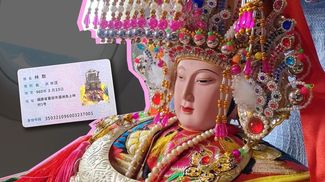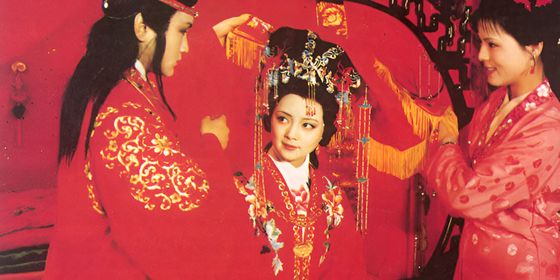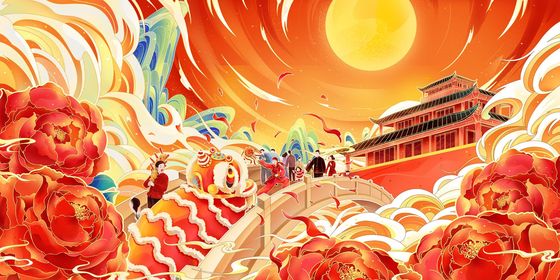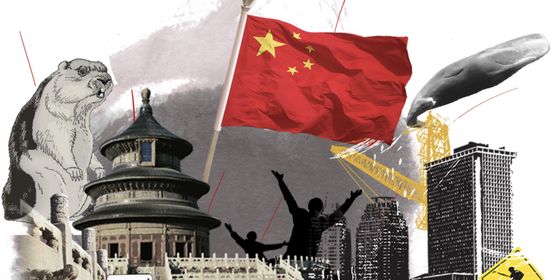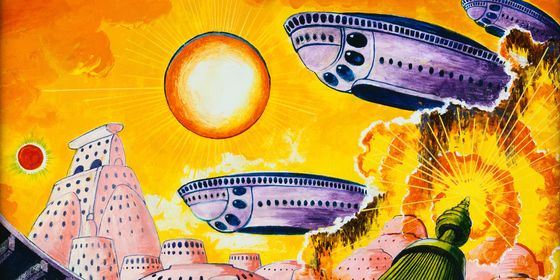Producing scandalous stories for the digital age
Dubbed “the Whore of the Orient,” Shanghai has always had a seedy reputation. One early missionary to the city once proclaimed, “If God allows Shanghai to endure, he will owe Sodom and Gomorrah an apology.”
Well, sorry Sodom, sorry Gomorrah, Shanghai is still there, still seedy and bursting at the seams with sex, drugs and money. And in the digital age it is even easier for writers and publishers to expose the nefarious goings-on we all secretly want to know about.

hOur Room, by Dyce artist Alison Mealy
Groups such as the Shanghai-based collective H.A.L. Publishing are taking full advantage of this to produce exciting, original writing. “Amidst the tumult of economic explosion, identity crises, national glory, and East-meets-West clichés are individuals living their lives like anyone else,” reads their website, and H.A.L. aims to tell those stories.
H.A.L.’s second collection of short stories, “Middle Kingdom Underground” (originally entitled, “Sex, Drugs and Money in Shanghai,” is sure to cause a stir when it comes out this December. Comprising the work of 12 authors, the book offers a diversity of lurid tales about real life in the PRC. “We wanted to dive straight into the underbelly of this city,” Wahlstrom says, “and the material is indeed pretty strong.”
Their first collection, “Party Like It’s 1984,” is a complex book that captures the limbo-like state in which many expats (or postpats as the folks at H.A.L. like to refer to themselves) find themselves. Wahlstrom and his partner Nathan Fischbacher set up H.A.L. based on the sentiment that, as Wahlstrom puts it, “it was and is high time to start defining ourselves as part of the emerging new China… to prove that we could persuade even the money-money-money society of this city that we should start viewing ourselves as more than temporary strangers in a strange land.”
He adds, “I like the more dramatic term. I believe coined about us by Ned Kelly (of That’s Shanghai magazine): ‘guerilla publishing’. That sums it up pretty neatly.”
In recent years, the Internet has drastically changed the face of publishing. Among the 170 novels in the running for this year’s prestigious Mao Dun Literature Prize were eight works published online. Though they were later taken out of the running, this was the first time that online works had been considered for the prize, which is awarded to up to five novels every four years.

SLAMHAI - by H.A.L., dedicated to spoken word, erotic fiction, and 'bare knuckle poetry slams'
On the rise are independent publishers like H.A.L. Being web-based allows these small ventures to keep costs down and stay afloat long after they would otherwise have gone under. The Internet age also allows smaller publishers to reach a much wider market with viral marketing campaigns becoming overnight phenomena.
When I ask Wahlstrom about the indie publishing scene in China, his reply is laconic but incisive: “Tiny scene, big ambitions.” He elaborates, “We in H.A.L. see ourselves at the beginning of a scene. As with everything in China someone has got to go first. There are ups and downs to this, but it’s definitely very exciting.”
Indie publishing also has its downsides. Large traditional publishers have established distribution networks that allow them to push books to a much wider audience. In lieu of this, indie publishers are often very community-oriented and have stronger links with local restaurants, bars and cafes as well as authors. It’s through events at these venues that publishers like H.A.L. translate their web presence into a real-world community.
“Indie publishing, almost per definition, draws on and tries to build communities,” says Wahlstrom. “Large publishers sell books. A small organization like H.A.L. can sit down over a few drinks in the Concession and think what we could do to draw attention to literature, specifically to the people in Shanghai, and then simply organize and execute through our larger H.A.L. collective.”
H.A.L., for example, have worked closely with Garden Books, the independent bookstore where they held a reading from “Party Like It’s 1984,” as well as with local art group Dyce Productions, which executed art pieces based on phrases from “Party Like It’s 1984.” Dyce’s mission statement is “presenting fine art as entertainment,” and to this end artists from the group used phrases from “Party Like It’s 1984” as the inspiration for art pieces. These kinds of projects are key to attracting communities. “Foreigners and Shanghainese alike expect to be entertained on a Saturday night,” Wahlstrom says, “and I think we have managed to convince people that poetry and partying work well together.” The group organizes regular events, such as the “SLAMHAI” poetry slams and the “Groupthink” writers’ workshops, in which writers gather to critique one another’s work.
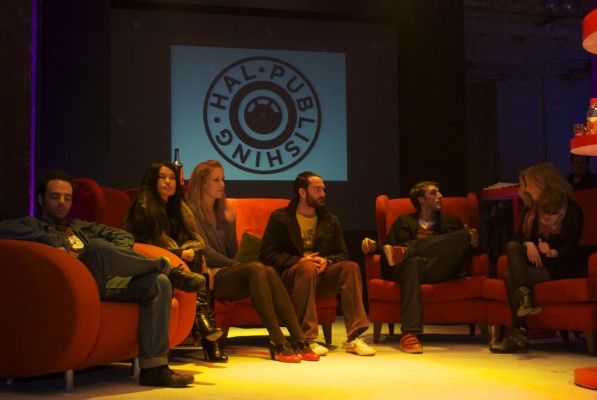
On the other end of the scale is Cloudary, the behemoth Chinese publisher that works in both traditional and digital formats. Cloudary (a shortening of “Cloud Library”) inhabits the unique position of being a giant publisher that relies on and supports grassroots writers. It operates six user-generated websites where people can upload their work with the chance of it getting published. A well-known example is “Naked Marriages—The New Era of Marriage for the Post-80s Generation,” which author Tang Xintian originally uploaded to Cloudary’s hongxiu.com only for it to be published and made into a popular TV show.
“The novel received enthusiastic responses, which met our conditions,” Yu Chen, the publishing director of Cloudary-owned HuawenTianxia, told iChinaStock. “Generally, we will serialize a novel online at first, and when half of it has been released, the website will stop its serialization, and prepare for publication.”
This innovative approach shows that big as well as small publishers can create a community around their work, although with larger publishers it’s much rarer. Many authors are now choosing to bypass publishing houses completely and self-publish their work. Though some people claim that this removes crucial filters for quality, advocates of self-publishing argue that it allows people greater freedom of expression. Books that don’t go through a traditional publishing house are not edited and therefore remain truer to the writer’s vision. With a model that combines self-publishing with institutional support, Cloudary takes an approach that exists in a middle ground between complete artistic freedom and industry control.
One of the advantages of companies like H.A.L., then, is that it gives writers complete control over their artistic vision. As with most indie publishers, H.A.L. meddles less with writers’ work, while its Groupthink workshops mean that whatever editing happens, happens organically.
Whether it’s Tang Xintian publishing online or H.A.L. using their website to create a literary community, it’s clear that the Internet is helping to drive the current revolution in publishing. Publishing is evolving; it’s opening up and becoming accessible, but that doesn’t mean it will all happen on its own. “You have to drive a scene,” Wahlstrom says. “Don’t sit around and wait for it to come to you.”
Like the article? You can buy the entire Literature Issue in our store.

